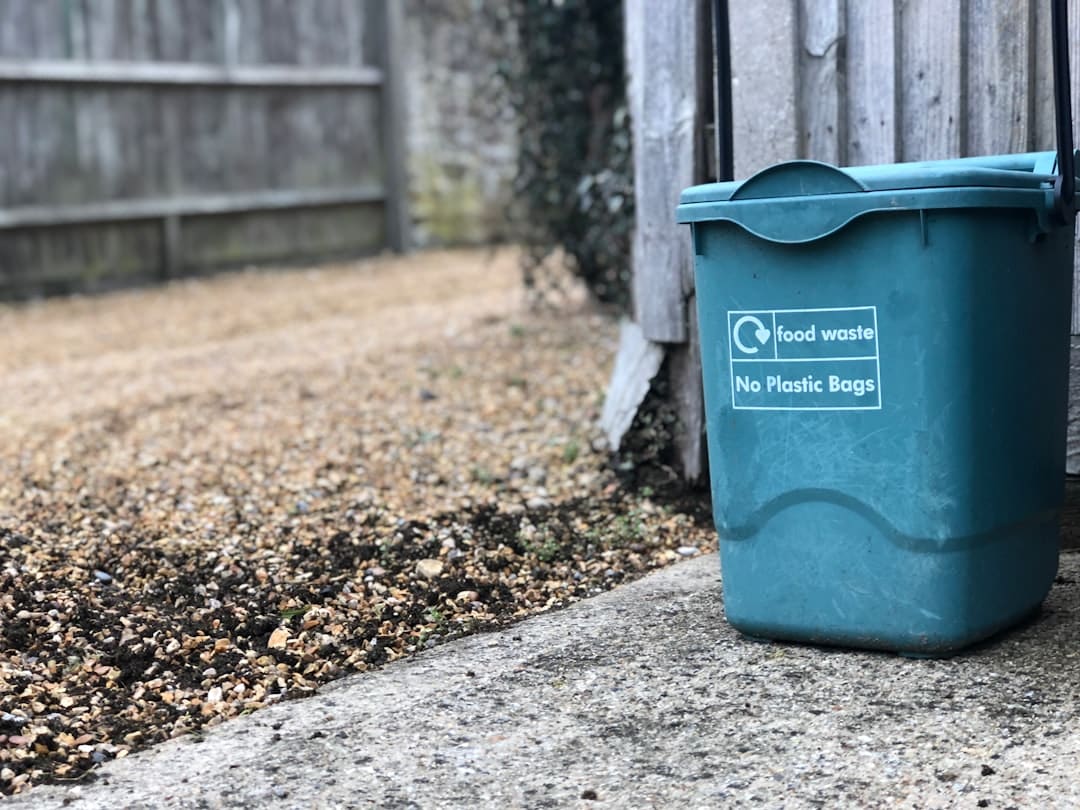The advent of smart waste collection routing represents a significant evolution in urban waste management practices. Traditional waste collection methods often rely on fixed schedules and routes, which can lead to inefficiencies, increased operational costs, and environmental concerns. In contrast, smart waste collection utilizes advanced technologies to optimize the process, ensuring that waste is collected in a timely and efficient manner.
This approach not only enhances the effectiveness of waste management systems but also contributes to sustainability efforts in urban environments. Smart waste collection routing leverages data-driven insights to inform decision-making processes. By integrating various technologies, municipalities can monitor waste levels in real-time, predict collection needs, and adjust routes accordingly.
This dynamic approach allows for a more responsive waste management system that can adapt to changing conditions, such as population density fluctuations or special events that generate increased waste. As cities continue to grow and evolve, the need for innovative solutions like smart waste collection routing becomes increasingly critical.
Key Takeaways
- Smart waste collection routing utilizes technology to optimize waste collection routes and schedules, leading to improved efficiency and cost savings.
- 5G technology plays a crucial role in enabling real-time monitoring and data analysis for smart waste collection, allowing for more accurate and timely decision-making.
- Real-time monitoring and data analysis provide valuable insights into waste collection patterns and trends, helping to optimize routes and schedules for improved efficiency.
- Smart waste collection leads to improved efficiency and cost savings, as well as reduced environmental impact through optimized routes and schedules.
- Integration with IoT devices and sensors allows for enhanced fleet management and route optimization, further improving the efficiency of waste collection operations.
The Role of 5G Technology in Smart Waste Collection
5G technology plays a pivotal role in the advancement of smart waste collection systems. With its high-speed connectivity and low latency, 5G enables real-time communication between waste collection vehicles, sensors, and central management systems. This rapid data transmission allows for immediate updates on waste levels, vehicle locations, and traffic conditions, facilitating more efficient routing decisions.
The enhanced connectivity provided by 5G ensures that all components of the waste management system can operate seamlessly together. Moreover, 5G technology supports the deployment of a larger number of IoT devices and sensors throughout urban areas. These devices can monitor various parameters, such as fill levels in waste bins, temperature changes, and even the presence of hazardous materials.
As cities increasingly adopt 5G infrastructure, the potential for smarter waste collection systems will continue to expand.
Real-time Monitoring and Data Analysis

Real-time monitoring is a cornerstone of smart waste collection routing. By utilizing sensors placed in waste bins and collection vehicles, municipalities can gather data on fill levels, collection times, and vehicle performance. This information is transmitted to a central management system where it is analyzed to inform operational decisions.
For instance, if a particular bin is nearing capacity, the system can prioritize that location for collection, ensuring that overflow does not occur. Data analysis plays a crucial role in optimizing waste collection routes. By examining historical data alongside real-time inputs, waste management authorities can identify patterns and trends that inform future operations.
For example, if certain areas consistently generate more waste during specific times of the year or after local events, adjustments can be made to the collection schedule to accommodate these fluctuations. This proactive approach not only enhances service delivery but also reduces the likelihood of missed collections and associated complaints from residents.
Improved Efficiency and Cost Savings
The implementation of smart waste collection routing leads to significant improvements in operational efficiency. By optimizing routes based on real-time data, waste collection vehicles can minimize travel distances and reduce fuel consumption. This not only lowers operational costs but also decreases greenhouse gas emissions associated with waste collection activities.
For instance, cities that have adopted smart routing systems have reported reductions in fuel usage by as much as 20%, translating into substantial cost savings over time. In addition to fuel savings, smart waste collection systems can reduce labor costs by streamlining operations. With optimized routes and schedules, fewer vehicles may be required to cover the same area, allowing municipalities to allocate resources more effectively.
Furthermore, the ability to predict collection needs based on data analysis means that staffing levels can be adjusted accordingly, ensuring that personnel are deployed where they are most needed without incurring unnecessary overtime costs.
Integration with IoT Devices and Sensors
The integration of IoT devices and sensors is fundamental to the success of smart waste collection systems. These devices can be installed in various locations throughout a city, providing critical data on waste levels and environmental conditions. For example, smart bins equipped with fill-level sensors can communicate directly with the central management system, alerting operators when they need to be emptied.
This targeted approach reduces unnecessary collections and optimizes resource allocation. Moreover, IoT devices can enhance safety and compliance within waste management operations. Sensors can monitor vehicle performance metrics such as speed and braking patterns, providing insights into driver behavior and vehicle maintenance needs.
This data can be used to implement training programs for drivers or schedule preventative maintenance for vehicles, ultimately leading to safer operations and reduced downtime.
Enhanced Fleet Management and Route Optimization

Effective fleet management is essential for any successful waste collection operation. Smart waste collection routing enhances fleet management by providing real-time visibility into vehicle locations and performance metrics. Fleet managers can monitor each vehicle’s status through a centralized dashboard, allowing them to make informed decisions about resource allocation and route adjustments on the fly.
By analyzing data from various sources—such as traffic patterns, weather conditions, and historical collection data—waste management authorities can develop dynamic routing strategies that adapt to changing circumstances. For instance, if a major road is closed due to construction or an accident, the system can automatically reroute vehicles to avoid delays.
This level of flexibility ensures that collections are completed efficiently while minimizing disruptions to residents.
Environmental Benefits of Smart Waste Collection
The environmental benefits of smart waste collection routing are profound and multifaceted. By optimizing routes and reducing fuel consumption, municipalities can significantly decrease their carbon footprint associated with waste collection activities. Additionally, improved efficiency leads to fewer emissions from vehicles idling or taking longer routes due to traffic congestion or inefficient planning.
Furthermore, smart waste collection systems promote recycling and proper disposal practices by providing data-driven insights into community behaviors. For example, if certain neighborhoods consistently generate high volumes of recyclable materials but have low participation rates in recycling programs, targeted outreach efforts can be implemented to educate residents about proper disposal methods. This proactive approach not only enhances recycling rates but also contributes to broader sustainability goals within urban environments.
Future Outlook for 5G in Waste Management
As cities continue to embrace digital transformation initiatives, the future outlook for 5G technology in waste management appears promising. The ongoing rollout of 5G infrastructure will enable even greater connectivity among IoT devices and sensors deployed throughout urban areas. This enhanced connectivity will facilitate more sophisticated data analytics capabilities, allowing municipalities to develop predictive models that anticipate future waste generation trends based on various factors such as population growth or economic activity.
Moreover, as 5G technology matures, we can expect further innovations in smart waste collection systems. For instance, advancements in artificial intelligence (AI) could lead to even more refined algorithms for route optimization and resource allocation. Additionally, the integration of machine learning could enable systems to learn from past performance data and continuously improve operational efficiency over time.
In conclusion, the intersection of 5G technology and smart waste collection routing represents a transformative shift in how municipalities manage urban waste. By leveraging real-time monitoring, data analysis, IoT integration, and enhanced fleet management practices, cities can create more efficient and sustainable waste management systems that benefit both residents and the environment alike. As these technologies continue to evolve, the potential for smarter cities will only expand further.
In a related article from Enicomp, they discuss the benefits of smartwatches, specifically the Xiaomi brand. The article provides a detailed review of the features and functionalities of Xiaomi smartwatches, highlighting their capabilities in tracking fitness metrics, receiving notifications, and more. To learn more about the latest smartwatch technology, you can read the full article here.
FAQs
What is 5G technology?
5G technology is the fifth generation of mobile networks, offering faster speeds, lower latency, and the ability to connect a massive number of devices simultaneously.
How does 5G improve smart waste collection routing?
5G technology enables real-time data transmission and analysis, allowing waste management companies to optimize collection routes, reduce fuel consumption, and minimize environmental impact.
What are the benefits of using 5G for smart waste collection routing?
Some benefits of using 5G for smart waste collection routing include improved operational efficiency, reduced costs, better resource allocation, and enhanced sustainability efforts.
How does 5G enable real-time monitoring of waste collection vehicles?
5G technology provides the bandwidth and low latency required for real-time tracking and monitoring of waste collection vehicles, allowing for better fleet management and route optimization.
Can 5G help in reducing carbon emissions from waste collection vehicles?
Yes, 5G-enabled smart waste collection routing can help reduce carbon emissions by optimizing routes, reducing idle time, and minimizing fuel consumption, leading to a more sustainable waste management process.

